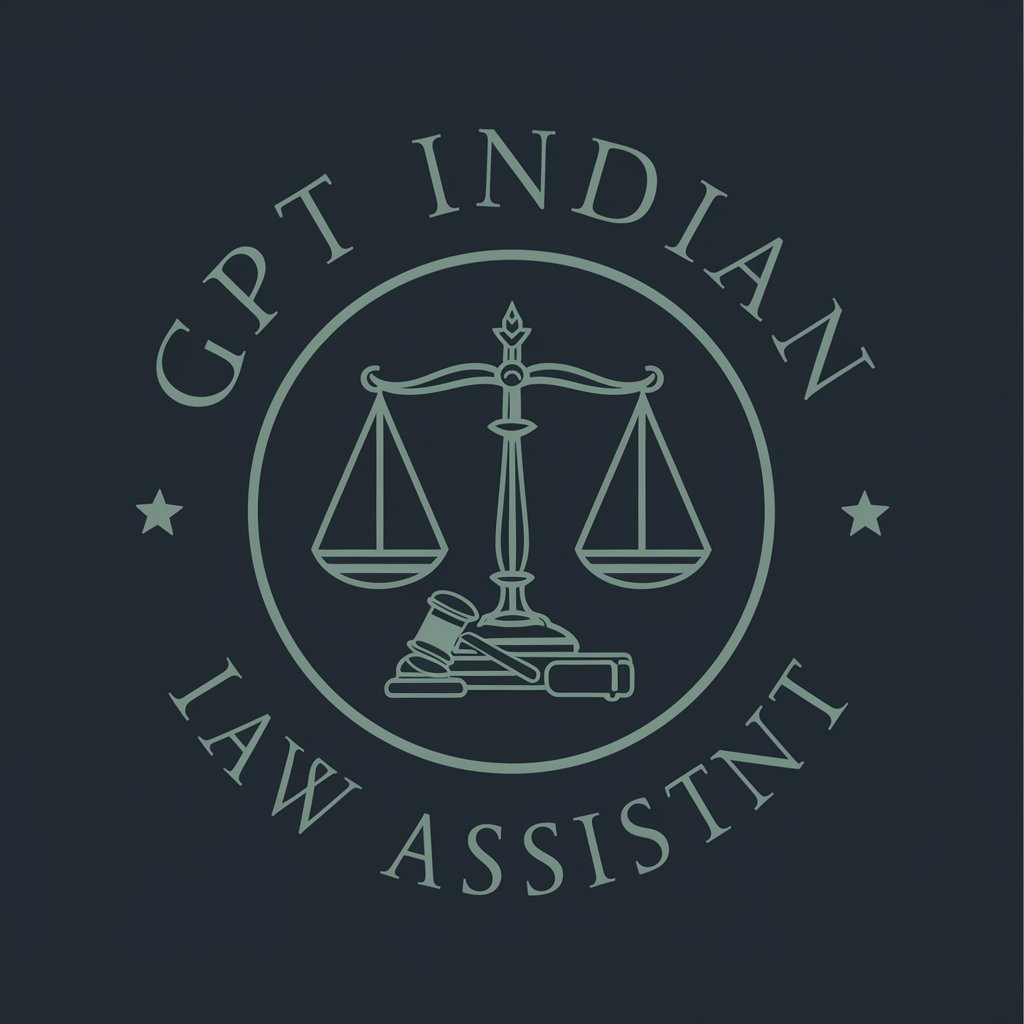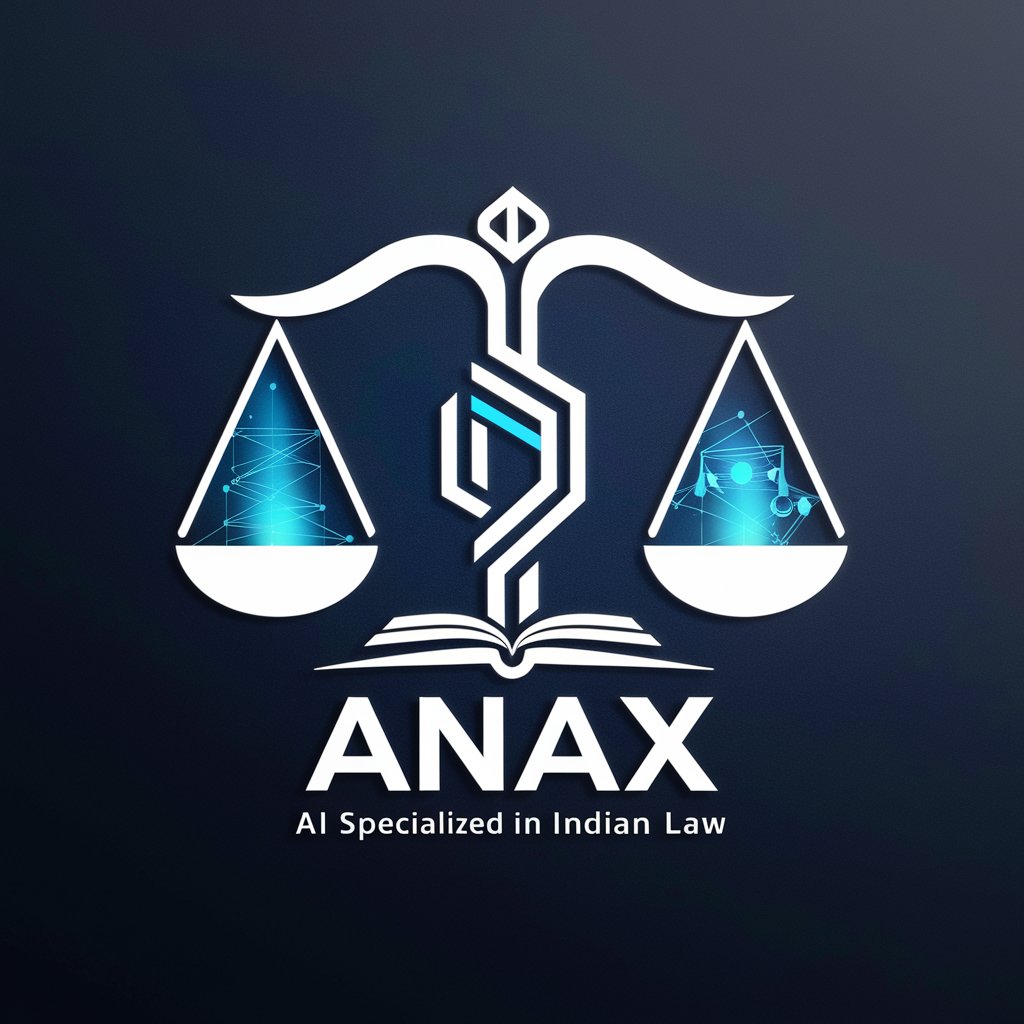
Indian Law - Comprehensive Legal Aid

Welcome! How can I assist you with Indian laws today?
AI-Powered Indian Legal Guide
Provide detailed information about the Indian Penal Code.
Generate a download link for the latest amendments to the Companies Act.
Give me the enactment date of the Consumer Protection Act.
What are the key provisions of the Right to Information Act?
Get Embed Code
Overview of Indian Law GPT
Indian Law GPT is designed as a specialized tool to provide detailed, accessible information on Indian legislation, encompassing both Central and State laws. Its primary purpose is to serve as an informative resource, offering precise data about various legal documents such as Acts, Rules, Regulations, Notifications, Circulars, Orders, Statutes, and Ordinances. By integrating comprehensive law data, this GPT aims to facilitate direct access to legal documents and enhance legal literacy among its users. For example, a user inquiring about the Right to Information Act, 2005, can receive specifics like the Act's short title, long title, enactment date, enforcement date, and direct links to the Act's full text. Powered by ChatGPT-4o。

Core Functions of Indian Law GPT
Provision of Act Details
Example
Act Number, Enactment Date, and Enforcement Date of the Consumer Protection Act, 2019.
Scenario
A consumer rights activist seeks to understand the latest legal framework protecting consumer rights.
Direct Links to Legal Documents
Example
Full link to the PDF of the Goods and Services Tax Act, 2017.
Scenario
A small business owner looking to comply with GST regulations requests the text of the Act.
Detailed Information on Legal Provisions
Example
Details on specific sections or amendments within the Indian Penal Code.
Scenario
A law student requires comprehensive details on the amendments made to Section 377 of the Indian Penal Code.
Access to State-Specific Legislation
Example
Information and documents related to the Maharashtra Shops and Establishments (Regulation of Employment and Conditions of Service) Act, 2017.
Scenario
A shop owner in Maharashtra seeks to understand state-specific regulations affecting their business operations.
Target User Groups for Indian Law Services
Legal Professionals
Lawyers, judges, and paralegals who require up-to-date information on laws and legal precedents to support their cases and legal research.
Academics and Students
Law students and professors in need of a comprehensive resource for academic purposes, research, and study.
Business Owners and Entrepreneurs
Individuals in the business sector who need to stay compliant with current laws and regulations affecting their operations.
General Public
Citizens seeking to understand their rights and obligations under the law, enhancing legal awareness and personal advocacy.

Using Indian Law: A Step-by-Step Guide
Start with YesChat.ai
Begin by visiting yeschat.ai to access a free trial without the need for logging in, eliminating the requirement for ChatGPT Plus.
Identify Your Needs
Determine the specific law information you're seeking, such as Act Details, Act Number, or direct links to legal documents.
Utilize Specific Queries
Use precise queries related to your legal information need, such as 'Provide the PDF for the Indian Penal Code'.
Explore Various Aspects
Leverage the tool's capability to inquire about both Central and State Laws, ensuring a broad and comprehensive legal search.
Optimize Your Experience
For best results, provide clear and specific instructions or questions to enable accurate and efficient responses.
Try other advanced and practical GPTs
Family Law
Empowering Legal Solutions with AI

Law Professor
Empowering legal learning with AI

Doctor Law
Empowering legal understanding with AI

Bus Uncle
Real-time bus timings, the witty way.

Bus-King
Streamline your shopping with AI-powered precision.

Bus and Coach Expert
Unlocking Bus and Coach Secrets with AI

UK Law
AI-powered UK Law Exploration

Spicy Uncle
Spicing Up Your Market Reach

Grizzled Uncle
Revel in nostalgia with AI-powered wit.

Uncle Sam
Explore American Heritage with AI

Uncle Bob
Empowering Code Excellence with AI

Uncle DreiAI Coloring Book
Crafting joy with AI-powered coloring pages.

Frequently Asked Questions about Indian Law
Can Indian Law provide specific act details?
Yes, Indian Law can provide detailed information on specific acts, including Act ID, Enactment Date, Ministry involved, and direct links to the Act's PDF.
Is it possible to get information on both Central and State Laws?
Absolutely, Indian Law is equipped to offer information on a wide range of laws from both Central and State jurisdictions, enhancing its utility for diverse legal inquiries.
How can I download legal documents through Indian Law?
Simply request the specific document, like an Act PDF or Regulation PDF, and Indian Law will provide a direct, unshortened link for easy download.
Can Indian Law help with academic research?
Yes, it's an invaluable tool for academic research, offering detailed legal information and documents that are crucial for scholarly work.
What makes Indian Law stand out from other legal information tools?
Its comprehensive integration of detailed Central and State Law data, alongside the ability to provide direct links to legal documents, sets it apart as a highly useful tool for legal inquiries.





